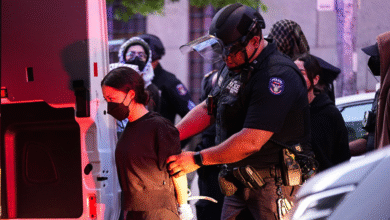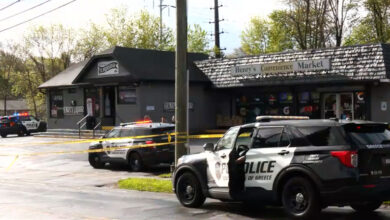North Carolina House Approves “Firearms Liberty Act” Offering Lifetime Carry Permits and New School Safety Measures

Listed To This Article: Play in new window | Download | Embed
You can also subscribe via Apple Podcasts | Spotify | Amazon Music | Android | | More
RALEIGH, NC — In a significant advancement for Second Amendment rights in North Carolina, the House passed House Bill 674, known as the “Firearms Liberty Act,” on May 7 with a 70-42 vote. The legislation introduces lifetime concealed carry permits, streamlines renewals for lapsed permits, expands options for firearm storage during domestic violence protective orders, and enhances school safety protocols with defensive devices in biometric safes.
The bill now moves to the Senate after clearing its third reading in the House.
Key Provisions of the Firearms Liberty Act:
Lifetime Concealed Handgun Permits:
The bill allows North Carolina residents to apply for a concealed carry permit with no expiration date. While current law only provides for five-year permits, this option enables permit holders to avoid repetitive renewals while still subject to revocation if disqualified.
Simplified Renewals for Lapsed Permits:
HB 674 extends the grace period for lapsed concealed carry permits. If a permit has been expired for fewer than 180 days, the applicant is no longer required to retake a firearms safety course. Sheriffs may also waive the training requirement for renewals up to one year after expiration.
Firearm Transfer Option in DVPO Cases:
The legislation also addresses the rights of gun owners under domestic violence protective orders. Individuals ordered to surrender firearms may now transfer those firearms to a qualified federally licensed firearms dealer (FFL) after 15 days, rather than storing them exclusively with the sheriff. This provision ensures that lawful owners maintain property rights while complying with court orders.
Liability Protection for Safety Hold Agreements:
FFLs entering into private “safety hold agreements” with firearm owners—where the firearm is voluntarily held for safekeeping—will now have protection from liability, provided there is no gross negligence. This provision encourages responsible gun ownership by offering a safe, voluntary method for temporarily storing firearms during times of crisis or concern.
School Safety Enhancements with Defensive Devices:
The act authorizes trained school employees to access non-lethal defensive devices—such as chemical sprays or electronic incapacitation tools—secured in biometric safes on school property. These tools may only be used in response to a justified threat and are subject to annual training requirements set by the Center for Safer Schools in conjunction with state law enforcement training bodies.
Other Notable Measures:
- Businesses that sell firearms and ammunition are now exempt from certain door lock requirements in the State Building Code, even if they do not operate a firing range.
- A statewide system will track changes to concealed carry permit holders’ residency and permit status, improving communication between sheriffs and the SBI.
HB 674 reflects a thoughtful and responsible approach to gun rights and public safety. By introducing lifetime concealed carry permits and reducing bureaucratic hurdles for law-abiding citizens, the General Assembly has reaffirmed its commitment to supporting the constitutional right to keep and bear arms. Simultaneously, the bill incorporates meaningful safeguards—especially in the areas of domestic violence and school safety—ensuring that enhanced gun rights do not come at the cost of public wellbeing.
Empowering responsible gun owners while improving security infrastructure, this legislation is a strong model for balancing liberty and safety.
What’s Next for the Firearms Liberty Act:
Now that the bill has passed the House, it has been referred to the Senate’s Rules and Operations Committee as of May 8. If approved in committee, it will move to the Senate floor for a vote. If passed without amendment, it would proceed to the governor’s desk for signature. However, if the Senate makes changes, the bill would return to the House for concurrence. Key provisions—including the lifetime permit option and biometric school safety measures—are set to take effect in late 2025 and early 2026, pending final legislative approval.
Read the full article here






